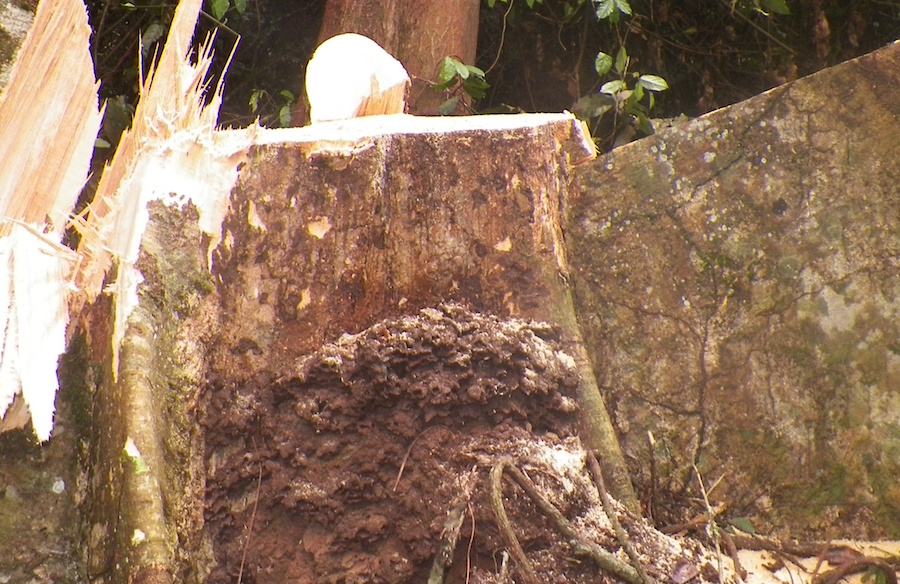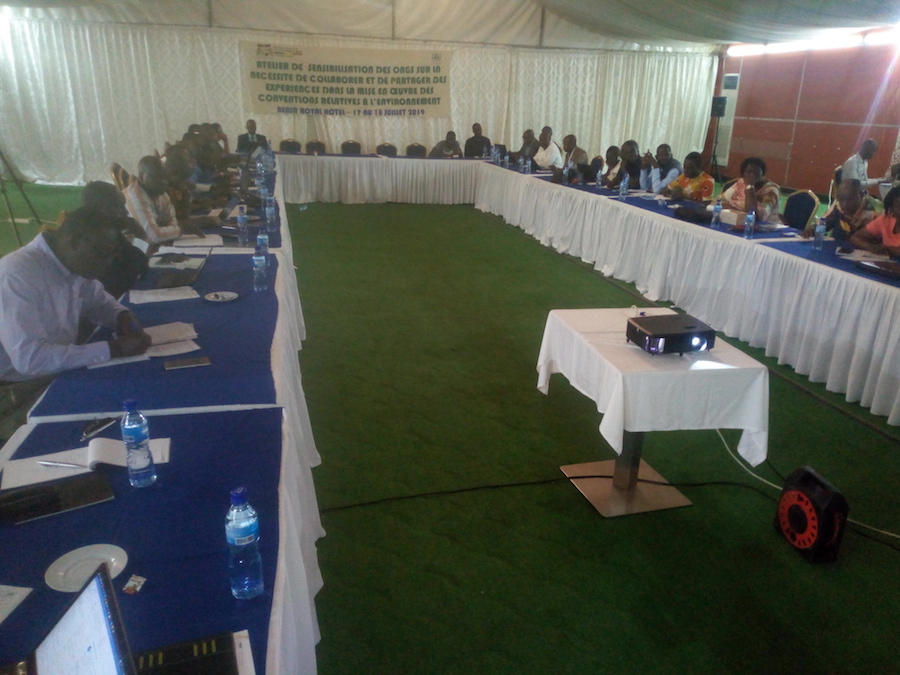
By Kofi Adu Domfeh
Ghana has become the third country to sign a landmark agreement with the World Bank that rewards community efforts to reduce carbon emissions from deforestation and forest degradation.
Ghana’s five-year Emission Reductions Payment Agreement (ERPA) with the Forest Carbon Partnership Facility (FCPF) Carbon Fund, which is administered by the World Bank, unlocks performance-based payments of up to US$50 million for carbon emission reductions from the forest and land use sectors.
Mozambique and the Democratic Republic of Congo have also signed ERPAs over the past ten months, with other Carbon Fund countries expected to sign similar agreements in the next year.
In Ghana, forest degradation and deforestation are driven primarily by cocoa farm expansion, coupled with logging and a recent increase in illegal mining.
Working in close partnership with the Forestry Commission, Cocoa Board, and private sector, Ghana’s program with the FCPF Carbon Fund seeks to reduce carbon emissions through the promotion of climate-smart cocoa production.
“The program’s two central goals – reducing carbon emissions in the forestry sector and producing truly sustainable, climate-smart cocoa beans – make it unique in Africa and the first of its kind in the cocoa and forest sectors worldwide. This program is helping to secure the future of Ghana’s forests while enhancing income and livelihood opportunities for farmers and forest-dependent communities,” said Kwadwo Owusu Afriyie, Chief Executive of Ghana’s Forestry Commission.
In Ghana’s ERPA, the FCPF Carbon Fund commits to making initial results-based payments for reductions of 10 million tons of CO2 emissions (up to US$50 million). Ghana’s ERPA also specifies on carbon emission baselines, price per ton of avoided CO2 emissions, and a benefit-sharing mechanism that has been prepared based on extensive consultations with local stakeholders and civil society organizations throughout the country.
Ghana’s emission reductions program is anchored in the country’s national strategy for reducing emissions from deforestation and forest degradation (REDD+), and is well-aligned with relevant national policies and strategies, including Ghana’s Shared Growth and Development Agenda, the National Climate Change Policy, the National Forest and Wildlife Policy, the National Gender Policy, and Ghana’s nationally-determined contributions to the UN Framework Convention on Climate Change.
Ghana’s emission reductions program area, located in the south of the country, covers almost 6 million hectares (ha) of the West Africa Guinean Forest biodiversity hotspot. The wider program area covers 1.2 million ha of forest reserves and national parks and is home to 12 million people.
An increase in cocoa production has historically meant more forests are cut to accommodate new cocoa seedlings, but this trend could be reversed to improve Ghana’s record as one of the highest deforestation rates in Africa.
Through the program, the government will focus on selected deforestation hotspot areas and help farmers and communities increase cocoa production there using climate-smart approaches. More sustainable cocoa farming will help avoid expansion of cocoa farms into forest lands and secure more predictable income streams for communities. These combined actions will help Ghana to meet its national climate commitments under the Paris Agreement.
This work leverages support from other initiatives, including from World Bank programs focused on forest rehabilitation, social inclusion, climate-smart agriculture, and sustainable land and water management.
The program also works closely with the Cocoa and Forests Initiative, which is an active commitment of top cocoa-producing countries with leading chocolate and cocoa companies to end deforestation and restore forest areas, through no further conversion of any forest land for cocoa production.
“It’s exciting to see the level of stakeholder engagement Ghana has been able to achieve with its emission reduction program, particularly with the private sector. Some of the most important cocoa and chocolate companies in the world, including World Cocoa Foundation members such as Mondelēz International, Olam, Touton and others, as well as Ghana’s Cocoa Board have committed to participating in the program,” said Pierre Frank Laporte, World Bank Country Director for Ghana, Liberia and Sierra Leone.
More than 30 stakeholder consultations, meetings, and workshops with over 40 institutions were conducted in the planning, design and validation of the program. Part of this outreach included developing and implementing a program-wide Gender Action Plan to sensitize stakeholders regarding the key role women play in sustainable land use and their right to benefit equally from results-based payments.











